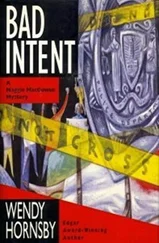“What did Rich have to say?” Jean-Paul asked as he tied his sneakers.
“Essentially what you said.”
“Smart man, our Sergeant Longshore.” He rose to his feet. “So, what is the plan of attack?”
“Le garage,” I said. “And a trip to the dump.”
His eyes lit up. “In the pickup?”
I handed him the keys, which he pocketed. He loved Mike’s big truck and was happy for any opportunity to drive it. For all of his polish, he was still just a boy drawn to planes, trains and automobiles, the bigger the better.
Opening the garage door was like putting out an OPEN HOUSE sign in the front yard. As Jean-Paul and I tackled fifty years’ worth of accumulated stuff packed into, onto, and around every shelf, cupboard and workbench, the lookie-loos, the curious, and the concerned from one end of the street to the other felt free to drop by to offer advice and comments, or just to chat. My mother would have served coffee.
There were a couple of invited helpers added to the mix. My former San Francisco housemate, Lyle, and his husband, Roy, arrived carrying a giant box of recyclable trash bags. Lyle, who had always been our resident handyman, started on Dad’s workbench, culling useless and duplicate tools to make one good set. We were leaving those tools that the tenants might need, from wrenches to plungers. The rest were up for grabs.
My parents were products of the Great Depression. They were loath to throw away anything that might conceivably have some use left in it, especially if it was connected to an electrical cord or an on/off switch. There was, for example, a drawer full of dead batteries that someone, caught up in magical thinking, must have thought could be brought back to life somehow. The batteries were just part of a vast, sometimes oozing, collection of electronic junk. All of it was put into bags and deposited into the bed of the pickup for delivery to a toxic and electronic-waste station.
Roy, an information technology specialist, went to work on anything computer-related. He removed the hard drives from the dead and outdated computers stacked in a back corner, and consigned the carcasses to the truck. When his corner was cleared, Roy went inside to back up and then wipe Dad’s files from the computer in the den. Roy had built the system shortly before Dad died and thought very highly of its capabilities. We decided that it would stay in the house because visiting faculty might find it useful, if for no other reason than that it was connected to a very good laser printer; visiting faculty might not travel with printers.
Jean-Paul went into the cupboards and began pulling down boxes of Christmas ornaments, camping and sports gear, and various semi-rejects that someone thought were too precious to toss but not precious enough to store inside the house. He received lots of opinions from the peanut gallery on the driveway: you could sell that on eBay, you should have a garage sale, the high school might want the well-used and thoroughly outdated sports equipment, and the library would love twenty years’ worth of National Geographics . Who wouldn’t?
When a Dumpster arrived-a refuse box in Bay Area-speak-for nontoxic discards, the deliverymen received a great deal of advice about placement on the driveway: Leave room for the pickup to come and go, don’t block the garage door, stay out of the flower borders. Like the rest of the actual working crew, the deliverymen paid scant attention to the kibbitzers and placed the Dumpster where it would be convenient for them to pick up again.
The noise of the Dumpster delivery attracted Mr. and Mrs. Loper from next door.
“How long will that thing be there?” George wanted to know. From his tone and expression it was clear that he did not think the big, ugly metal trash box enhanced his neighborhood.
“They’ll pick it up Monday,” I said, tossing in a pair of very dusty old sleeping bags. “And replace it with an empty. I hope to be finished with all of this by the middle of next week.”
George followed me into the garage, talking to my back as we walked. “I’ve been keeping my eye out for Nordquist this A.M. He always seems to pop up first thing in the morning, so I began to think he might be sleeping in your backyard. Last night I was out there when you drove up, hoping to catch him before he tucked himself in for the night.”
“What were you planning to do with the baseball bat?” I asked.
“Just a little inducement to stay away, if you know what I mean,” he said. “A twelve-bore would put a stop to him.”
“You don’t own a twelve-bore,” his wife, Karen, admonished; she had followed us in. “Or any other firearm, for that matter. I won’t allow those things in my house.” She winked at me as she tipped her head toward her husband. “Who knows what a hothead might do if there were a lethal weapon handy at the wrong moment?”
George paid no attention to her. He went over to “help” Lyle with Dad’s tools.
“So good to see you, Maggie,” Karen Loper said. She had aged a great deal since I saw her last. Living with George Loper would age anyone in a hurry, but it wasn’t only wrinkles and gray hair that had changed her. She held her left hand protectively and her left foot lagged a bit when she walked; a stroke?
“Sorry I haven’t dropped by sooner to say hello,” she said, standing to the side while I unloaded the family’s collection of outdated textbooks from shelves. Boxes and dusty boxes of them. “But you’ve had so much to do and I didn’t want to get in your way. I was talking to Sunny last night-”
“And how is Sunny?” I asked. Her daughter had once been one of my best friends.
“Oh, she’s fine. I worried when her youngest went off to college last fall. That empty nest nearly killed me, you know. But not Sunny. Since she made partner at the law firm she’s been too busy to notice how empty her house is.”
“Good for her,” I said. “Say hello for me.”
“I shall,” she said. “Was that Evie Miller I saw over here the other day?”
“It was. She’s working with University Housing.”
“Too bad about her and Tom.”
“Maggie?” Jean-Paul stood in front of one of the floor-to-ceiling cupboards that lined the back wall and clearly wanted some guidance about what to do with its contents. I was happy he interrupted before Karen got further into her tale of someone else’s woe. While Gracie Nussbaum passed along information, Karen was a notorious and sometimes malicious gossip. I very much did not want to hear about Evie and Tom, whoever he was.
“Excuse me,” I said to her.
“Of course.” She patted my shoulder. “I’ll get out of your way.”
She wandered out to talk to another neighbor on the driveway, and I went to see what Jean-Paul had found.
Inside the cupboard, among other things, there were two large plastic laundry baskets filled with little developer’s boxes full of old family slides and movies. I groaned.
“I will leave them to you,” Jean-Paul said, smiling as he moved on to old paint cans, paintbrushes, and household chemicals that needed to go to the toxic waste dump.
I pulled the laundry baskets down, knelt on the floor beside them and started looking at the notations on the film boxes. There were photos and movies of family trips and school plays, Christmas pageants and birthdays, and roses-many roses-and they needed to be at least looked through. But later. The baskets would have to come home with me to be sorted on some lonely rainy night.
As I shifted the baskets to the corner of the garage designated for things I was keeping, I noticed a handwritten notation on the end of a slide box: GARDEN-CHRYSLERS, and a date. Dad was proud of his Chrysler Imperial roses, to be sure, but what interested me was the film developer’s date stamp. I began pawing through the basket, looking for more boxes dated around the time that Mrs. Bartolini died.
Читать дальше












